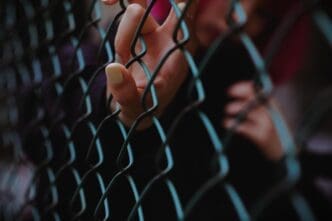The upcoming decision by the State Supreme Court justices will determine whether Sheldon Jeter, currently serving a life sentence for the murder of Tyrek Pugh in 2020, will receive an evidentiary hearing. Jeter was identified as the last individual to be with Pugh on the night of the murder in Aliquippa. Authorities discovered the murder weapon beneath his mattress, and surveillance footage placed Jeter’s vehicle near the crime scene.
Despite the conviction and life sentence, Jeter’s attorney has put forth a case for an evidentiary hearing, citing a conversation involving a juror and her father during jury deliberations. This discussion, reportedly about the case, is claimed to include the juror expressing difficulty in reaching a decision, ultimately resolving it through prayer with her father. Jurors are strictly prohibited from discussing cases outside of deliberations.
The broader context of this conversation is under scrutiny, particularly concerning any references to the Rachael DelTondo murder case, in which Jeter was named the prime suspect though never charged. The juror and her father resided adjacent to DelTondo, a teacher who was murdered in her parents’ driveway on Mother’s Day in 2018. The attorney representing Jeter insists on understanding the influence of this conversation on the juror’s perspective regarding Jeter, especially concerning any discourse about his alleged connection to DelTondo’s death.
If granted, the hearing could potentially open the door to a new trial for Jeter. The resolution of DelTondo’s murder remains pending, with no charges filed, although former Beaver County District Attorney had identified Jeter as the prime suspect. As of now, the justices have not announced their decision.
The Bigger Picture
The decision on whether to grant Sheldon Jeter an evidentiary hearing has significant implications for the justice system and the community. If the hearing is approved, it could lead to a new trial and possibly alter the current legal outcome for Jeter. This development highlights the importance of juror integrity and the potential impact of external influences on verdicts.
For the community, particularly in Aliquippa, the case remains a point of contention, intertwining with the unresolved murder of Rachael DelTondo. The discussions surrounding Jeter’s case bring to light the complexities of legal proceedings and the importance of a fair trial. The ongoing attention to these cases underscores the community’s demand for closure and justice, affecting public trust in local law enforcement and judicial processes.






